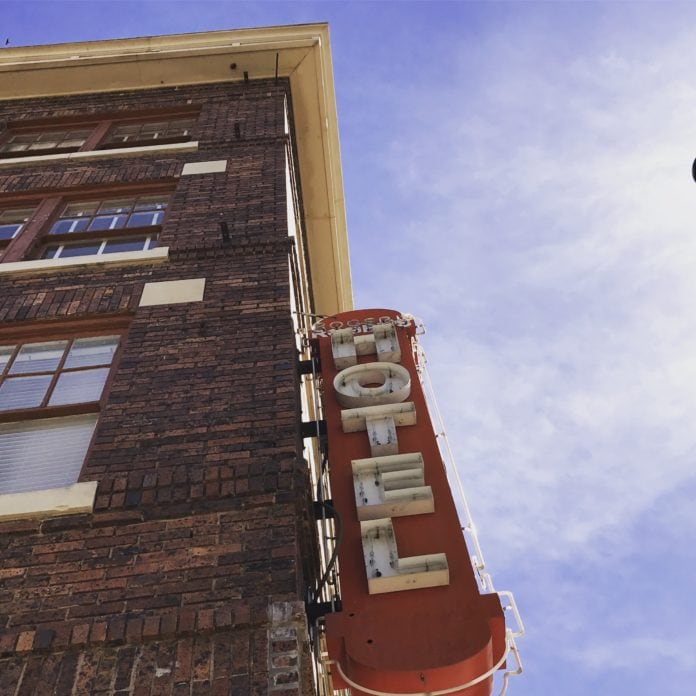In the last couple days, I’ve been hearing from friends from Guatemala to Norway to France to Egypt and, of course, across the USA. It occurred to me that good governance, the strength of institutions, social sensibilities, corruption, and trust within communities are all different—and while the COVID-19 crisis is global, how it impacts communities is softened (or not) by the particular social weave of each society. Some countries have capable leaders that make them proud and give them confidence. Some have huge reserves of oil revenue banked for a rainy season like this. Others have an “it takes a village” ethic. In some communities, it’s rugged individualism and a massive gap between rich and poor. And some are plagued with resurgent gangs. And in every society, the dreams of small business people are being dashed.
As an entrepreneur, I have a soft place in my heart for other small business people. I worked so hard through my young adulthood to build my business, I lost track of other goings on in my culture and community. But a beautiful thing about starting a business in the US has been that hard work pays off. And it did for me. Sadly, in this crisis, years of diligent hard work by small business people can be washed away like a sand castle by an in-coming tide. And I’ve been thinking about the brutality of monthly rent when a business community suddenly locks down and there’s no revenue to generate. Here’s a photo of Edmonds, Washington with the theater I’ve enjoyed since childhood temporarily shut down along with small shops and mom & pop restaurants all along Main Street.
This week, as rent is due in every community across our country, I wrote this editorial. If it resonates with you as a landlord, tenant, or loyal patron, please own it (edit as you like) and share it with your local newspaper. Thanks.
Walking through my small town recently, I realized I was walking through a silent yet desperate world of broken dreams. Because of the fight to stop the spread of COVID-19, small-business owners—retailers, restaurateurs, and service providers—are struggling just to survive. Their economic disaster is being compounded by landlords demanding rent, as agreed upon when their properties were part of a vibrant economy. But suddenly, the space they rented is generating no revenue… and yet, the full rent is still legally due.
In our society, it’s all-hands-on-deck to confront this coronavirus crisis—except, it seems, for landlords. As once-vibrant business districts are now locked down, workers are unemployed and small businesses are threatened. As taxpayers, we have just collectively given over $2 trillion through the government bailout program. But what is being asked of landlords?
Sure, most landlords have mortgages to pay off and their own ongoing business expenses. And banks should also do their part and offer leniency in deferring mortgage payments—as some already are. But, in general, people who own properties to rent are, in all likelihood, better able to weather this economic calamity than their tenants.
No one knows when this crisis will be over, nor how readily shops, services, and eateries on Main Street can snap back into economic health. But one thing is clear: Small businesses in crisis are being asked to pay rent on a space they no longer occupy—a place of business that is no longer viable.
What’s the solution? Some communities are asking neighbors to donate money so that the small businesses that give their town the character they love can pay their rent. Some are talking about deferring rent payments (letting businesses pay the rent later, once recovery is underway). There’s also talk of tenants being able to apply damage deposits toward rent payments. However, in none of these proposed solutions are landlords forgoing any actual revenue.
To share the economic burden of this crisis fairly, true rent relief (or, at a minimum, rent reduction) is called for. This is already happening in small ways: Some businesses are big enough to simply declare that they won’t be paying their April rent (such as the Cheesecake Factory chain just did). And a few community-minded landlords are offering concessions. But a broader solution is needed.
This crisis is going to be tough on so many dimensions of our society and economy. Many dreams will be dashed as we all sacrifice to beat this virus. As a commercial property owner myself, I believe that landlords should share the economic pain threatening our business communities. An equitable solution is not just deferred rent. It’s not just protecting tenants from eviction. It’s not just expecting caring people to divert their charitable dollars to landlords so that a beloved neighborhood shop will not miss a rent check. These actions are noble, yes, but they miss the point.
The right solution? A total moratorium on rent due from small businesses to landlords for spaces that no longer are able to generate revenue—until this crisis is over. A case can be made that this will help business districts emerge from the crisis intact, and therefore lead to a better outcome for landlords in the long run. More important, however, a case can be made that it’s just the decent and ethical thing to do.
An Op-Ed by Rick Steves, Rick Steves, America’s most respected authority on European travel, empowers Americans to have European trips that are fun, affordable, and culturally broadening.













